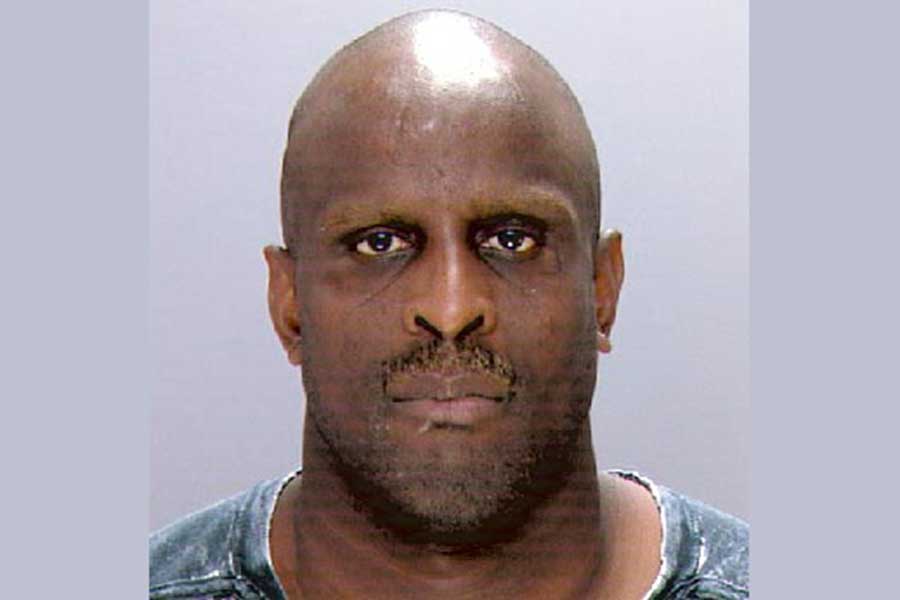Charles N. Sargent told jurors this week that he was a “slimeball” when interacting with trans woman Diamond Williams five years ago but didn’t murder her.
Sargent took the witness stand March 5 on the sixth day of his murder trial, which began Feb. 26 at the Criminal Justice Center in Center City.
The 48-year-old allegedly brought Williams to his Strawberry Mansion residence in July 2013, punctured her cranium with a screwdriver, then dismembered her corpse with an axe.
Sargent discarded most of the the young woman’s body parts in a vacant lot but threw her pelvis, genitals and buttocks into the Schuylkill River, according to prosecutors.
Sargent told jurors he has nothing against the trans community but didn’t want to have sex with a trans woman. He said he didn’t become aware of Williams’ trans status until after they had anal sex.
The belated realization came as a “shock” to Sargent, and a violent argument ensued. Williams pulled out a boxcutter from her purse and demanded $40 pursuant to a prior agreement, which caused Sargent to stab her in self-defense, according to Sargent’s testimony.
“I regret what I did,” Sargent added. “I’m remorseful. [But] I think I have a right to defend myself. I think everyone has a right to defend themselves.”
Sargent emphatically denied intentionally murdering Williams.
“That wasn’t a plan,” he testified.
Sargent also defended his character. “I’m a humble guy; I’m not a troublemaker. I can be aggressive. But I don’t go around hurting people. That’s not in me. It never was in me.”
Still, Sargent admitted his overall treatment of Williams was wrong. “I was a slimeball. I should have been hurt, at the end of the day. It was a loss all around. I lost my family. And I apologize to the community … I’m still coping with this, five years later.”
Under intense cross-examination by prosecutor Kristen J. Kemp, Sargent insisted he had a right to protect himself in his home. At one point, he asked Kemp: “How would you like a knife to rub up against you?”
Common Pleas Judge Diana L. Anhalt said Kemp didn’t have to answer the question.
Kemp focused her questioning on alleged excessive use of force by Sargent against Williams. When Sargent asked Kemp if she ever did anything wrong, the prosecutor retorted: “No, I’ve never chopped up a body and thrown a pelvis into a river.”
Sargent admitted there’s no justification for his behavior when dismembering Williams’ corpse. But he also emphasized that his trial testimony is truthful.
“It doesn’t bother me to tell you the truth,” Sargent told Kemp. “It seems like the truth is giving you a hard time.”
But Kemp noted that Sargent has a pattern of lying to people, including lying to his father, girlfriend and two detectives. The defendant agreed with Kemp on that point.
Kemp built a case against Sargent by presenting forensic evidence to jurors. But due to an evidence-retention mishap at the city medical examiner’s office, blood recovered at the crime scene couldn’t be linked scientifically to Williams.
Authorities say they’re taking steps to prevent a similar mishap in the future.
None of the evidence establishes the exact time of Williams’ death. Thus, it remains possible that Sargent didn’t kill her until after his girlfriend entered their Strawberry Mansion residence and Sargent feigned outrage at Williams’ trans status.
Sargent is representing himself during the trial. Closing arguments are expected to take place March 6, which is when Anhalt will give instructions to jurors and they’ll begin deliberations.
If convicted of first-degree murder, Sargent faces a lifetime in prison. Prosecutors aren’t seeking the death penalty. He remains incarcerated pending the outcome of his trial.
Several LGBT advocates have attended the trial, including Amber Hikes, executive director of the city’s Office of LGBT Affairs.
